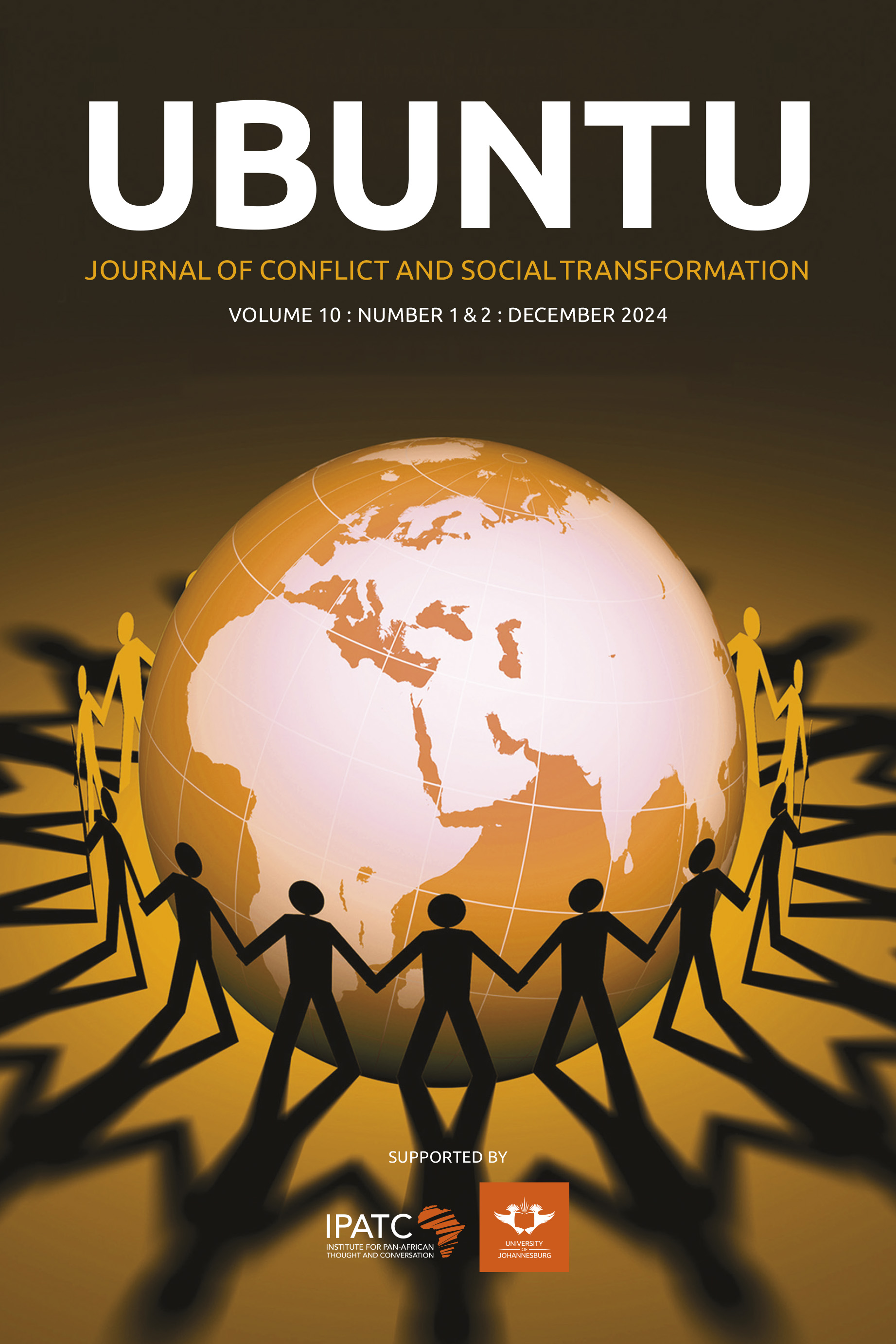Party Politics and Electoral Violence in Nigerian 4th Republic Implications for Democracy
Main Article Content
Keywords
Electoral Process, Party Politics, Democracy, Violence, Structural Functionalism
Abstract
Electoral process in Nigerian fourth republic is gradually degenerating to a conflict situation and has become a recipe for electoral violence. Election periods in Nigeria witness high spate of assassination, maiming, thuggery, arson, unlawful arrest, abductions and intimidation of persons or group of persons. It creates an atmosphere of war which tends to create room for the survival of the fittest. This is because elections are seen not only as opportunity to control political power but an access to national resources. It is seen as an investment which no one will like to lose and so fair and foul means are exploited to get electoral votes. This ugly situation has negative implications on democracy. This study highlights the critical roles that political parties in Nigerian fourth republic play in the promotion of electoral violence. The research design for this study was historical-descriptive design. The data were obtained through secondary sources. Guided by the research methodology and structural functionalist theoretical framework, the study established a link between the character of party politics in Nigerian fourth republic and electoral violence. It found out that party politics was the major factor behind electoral violence in Nigeria which in turn hinders the democratic aspiration of the country. The study concluded that political parties in Nigeria have proved to be undemocratic and anti-democratic institutions. It recommended inter-alia, that political parties should be made to play critical roles in democratic consolidation and so, should change from mere institutions for acquiring political power to effective institutions that are capable of mediating and reconciling societal interests and conflicts. In addition, the rules and procedures that govern electoral behavior and conducts should be strictly applied and enforced to serve as deterrence.
Article Metrics Graph
References
Alemika, E. O. (2011). Post election violence in Nigeria: emerging trends and lessons’ Clean, Abuja.
Almond, G. (1956). Comparative political system. Princeton. In the journal of politics, 18 (3), 394. https://doi.org/10.2307/2127255
Badejo, B. T & Obah-Akpowoghaha, N. G. (2015). The impact of cross-carpeting and multiplicity of political parties in Nigerian democratic process, journal of African studies and dev. vol 7, no. 8 p. 215-230.
Bamgbose, J.A (2012). Electoral violence and Nigeria’s 2011 general elections. International review of social sciences and humanities vol 4 (1).
Biegon, J. (2009). Electoral violence and fragility in Africa: Drawing lessons from Kenya’s experience in the 2007/2008 post-election violence. Presented at the conference on financial markets, adverse shocks and coping strategies in fragile countries. Accra, 21-23 May.
Cheeseman, N. (2008). The Kenyan elections of 2007: An introduction, Journal of Eastern Studies vol.1. https://doi.org/10.1080/17531050802058286
Downs, A (1957). An economic theory of democracy New York: Harper.
Human Rights Watch (2011). Nigeria: Post-election violence killed 800, Washington DC. http://www.hrw.org/news/2011/05/16/nigeria-post-election-violence-killed-800.
Ikelegbe, A. (2014). Political and violence in Obafemi O; Egwu’s; Ibeanu, O; Ibrahim, J (ed) Political parties & democracy in Nigeria. A Publication of National Institute for Policy and Strategic Studies (NIPSS) Kuru.
INEC (2007). The official report on the 2007 general elections, Abuja.
Kambudzi, A (2008). Turning elections into a development asset in Africa. institute of security studies, ISS Paper 163, Pretoria.
Levitsky, Steven & Maxwell (2003). Democracy without parties? Political parties and regime change in Fujimoris Peru. Latin American Politics and Society, 45(3). 1-33. https://doi.org/10.1111/j.1548-2456.2003.tb00248.x
Mehler, A (2007). “Political parties and violence in Africa: systematic reflections against empirical background” in votes, money and violence: political parties and elections in sub-Saharan Africa, eds M. Basedau G. Erdmann & A Mehler, Nordiaka Africa Institute/University of KwaZulu-natal Press, Scottsville.
Ojo, J. (2008). The challenge of electoral reform through enhanced political party management and internal democracy, presented at the society for peace studies and practical, first national conference and general assembly, Abuja 17, June.
Olurode, L (2007). Glimpses into Mandate Protection in the 2007 Elections in Osun State in Direct Capture: The 2007 Nigerian Elections and Subversion of Popular Sovereignty, eds J. Ibrahim & O. Ibeanu, Centre for Democracy and Development, Abuja.
Orji, N & Uzodi N (2012). Post election violence in Nigeria: experiences with the 2011 elections, policy and legal advocacy centre, Abuja.
Parsons, T. (1971). Politics and social structure. New York. Free Press 20.
Sunday Vanguard (2010). Killing in the name of politics, 24th October.
The Guardian (2010), Eight PDP states in protest, cry for fresh primaries, 26 October.
The Guardian (2010). Ekiti: Journey to gate of hell on election day 3, May.
The Guardian (2010). Intrigues that played out in Edo Assembly, 28 February.
Transition Monitoring Group (2003). Do the votes count? Final report of the 2003 general elections in Nigeria, Abuja.
Vallings, C. and Moreno-Torres, M (2005). Drivers of fragility: What makes states fragile? PRDE working Paper No.7.
Ya’u, Y. Z (2009). Elites consensus, violence and mandate protection in Bauchi State’ in direct capture: The 2007 elections and subversion of popular sovereignty, eds J. Ibrahm & O. Ibeanu, Centre for Democracy & Dev. Abuja.






